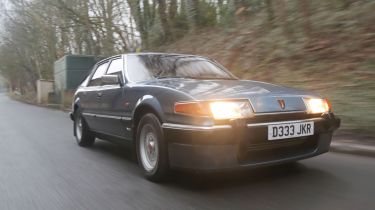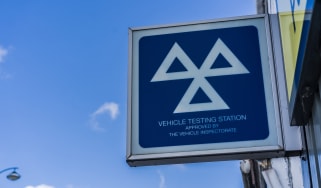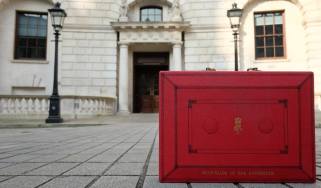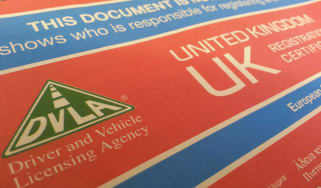Classic car tax explained: what is historic vehicle tax exemption?
When a car turns 40 years old it becomes road tax exempt. Here's everything you need to know about the historic vehicle tax exemption

Running a car has become increasingly expensive in recent years, but if you’re into classic metal, the Government does offer some financial respite when a car turns 40 years old.
One aspect of this is MoT test exemption, with cars over 40 years old no longer required to sit the annual inspection – although some owners choose to carry on with the practice as a back-up for regular maintenance, to ensure that no safety-critical aspects have been missed.
The other is historic vehicle tax exemption. This used to be offered on a rolling basis at 25 years, but in 1997 the needle stuck – meaning only cars of 1972 and earlier were exempt – and only in 2015 was it reinstated again, this time at 40 years. That means that in 2025, cars built prior to January 1, 1985 become exempt from Vehicle Excise Duty, or VED road tax.
Why does the Government offer historic vehicle tax exemption?
Nearly two million new cars were registered in the UK in 2024. While that’s not an all-time record, it shows how many cars are being added to the road across the country. The people driving them are likely selling or part-exchanging their previous cars, so older cars hit the used market. Those will replace even older ones which may be sold on, or could be reaching the end of their useful lives and get scrapped.
This process of constant replacement, and the attrition rate of older cars, means that just a tiny fraction of new cars ever reach their 40th birthday. That means very few would contribute tax to the Treasury, but their ownership and upkeep contributes a lot more to the economy as a whole – around £4 billion a year, according to the Federation of British Historic Vehicle Clubs.
On that basis, the Government lets you register a vehicle as historic once it’s more than 40 years old, and you get to enjoy driving around tax-free – along with roughly 10,000 vehicles that the Government estimates qualify as historic vehicles, or about half a percent of 2024’s new car sales tally.
How does historic vehicle tax exemption work?
While historic vehicle tax exemption is a rolling system, meaning that each year more 40-year-old cars become exempt, the exemption only qualifies from the start of the new tax year, which is April 1.
The government’s wording is a little confusing but this means that in 2025, any vehicle registered prior to January 1 of 1985 becomes eligible for tax exemption, though not until April 1 – so it’ll still need to be taxed until that point, although you can get the ball rolling on the application process before then.
This also means that if you have a vehicle registered in, say, June 1985, it won’t be eligible for tax-free status until April 1 2026, rather than from June 2025.
How do I apply for historic vehicle tax exemption?
You can’t just sit back and wait for exemption for your car. Much like with registering your car with a Statutory Off-Road Notification, or SORN, you have to actively apply for exemption, registering it as a historic vehicle.
For this you’ll need the V5C log book in your name, a V11 vehicle tax reminder letter if you have one, and evidence of either a current MoT, or MoT exemption (and yes, you have to declare your car exempt from MoTs, too – apparently the Driver and Vehicle Licensing Agency’s computers can’t just do all this automatically…)
As there’s an application process, this also means that if you’re buying a used car built more than 40 years ago, you’ll need to check with the DVLA that the car is registered as a historic vehicle, too. If it isn’t, you’ll have to do so yourself – or tax it in the meantime so you can legally drive it.
Once your vehicle is registered as historic, you may also be due a refund on any tax you’ve paid in the interim.
Is historic vehicle tax exemption likely to change in future?
Probably not. There have been a few petitions on the Government website to lower the limit back down to 30 years, or even the original 25 years, and none has succeeded so far.
While the lower age limits aren’t unreasonable – several countries consider cars historic once they reach 25 or 30 years old – there would be little benefit for the Government to make more vehicles tax-exempt. The 40-year mark has also probably been quite carefully considered to avoid too many people putting older cars into regular use, with the environmental and safety implications that might have.
So the 40-year rolling exemption should last for a while, and there are other benefits, too: cars older than 40 years are actually exempt from London’s Ultra Low Emission Zone too, although not the central Congestion Charge zone.
How much is your car worth? Find out with our free car valuation tool...
Find a car with the experts









